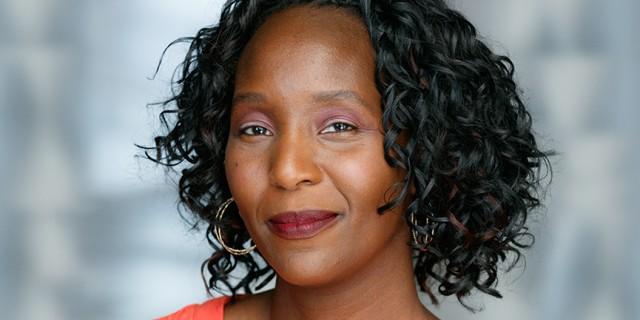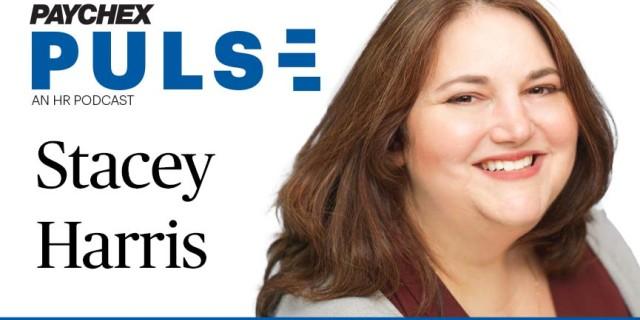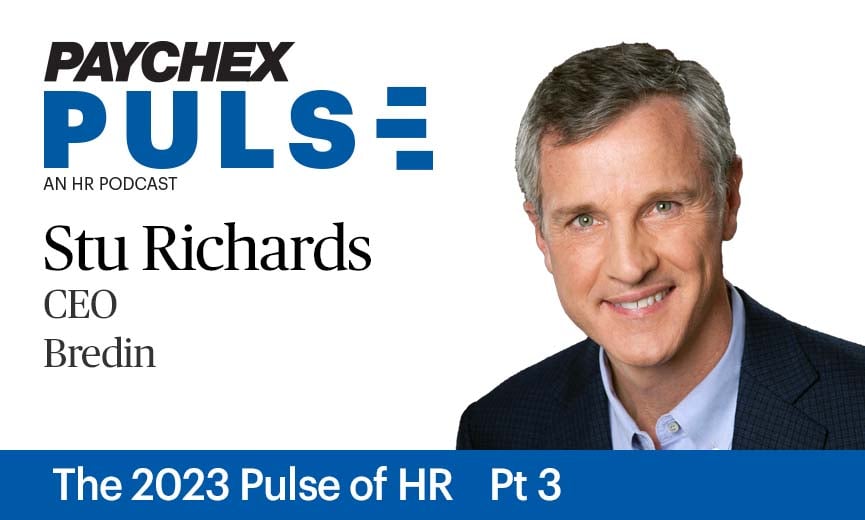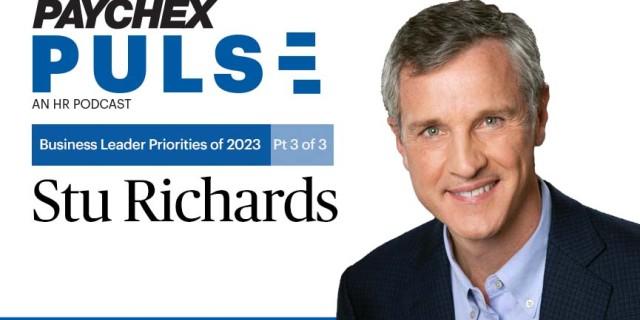HR Solutions for Modern Businesses: 2023 HR Tech Series - Part 2
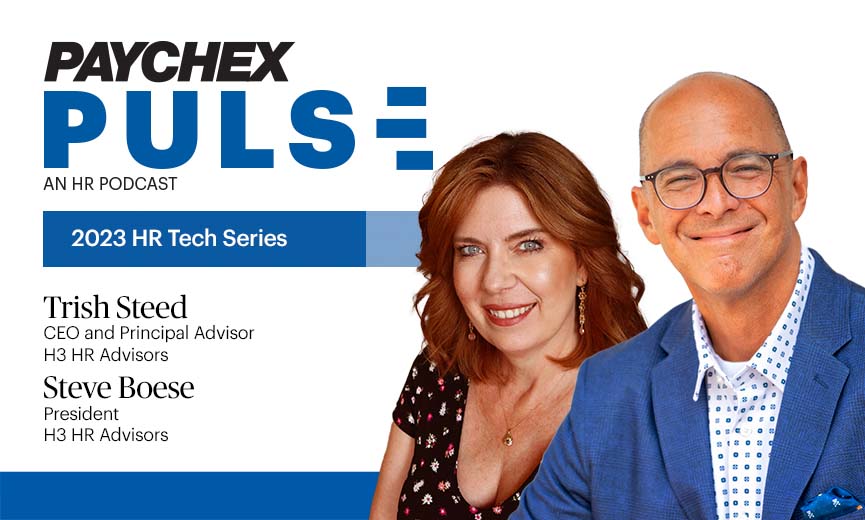
Podcast •

Vea
Resumen
We continue our series live from the floor of the 2023 HR Technology Conference with Trish Steed, CEO and Principal Advisor of H3 HR Advisors, and Steve Boese, President of H3 HR Advisors. They join the podcast to discuss current trends and the future direction of HR technologies. From the deployment of artificial intelligence in streamlining HR processes to the need for a consolidated tech stack, Trish and Steve share how HR professionals can leverage HR technology to create a better, more efficient, and more engaging employee experience.
Topics include:
00:00 – Welcome Trish Steed and Steve Boese
01:35 – Steve’s insights from HR Tech
02:18 – Trish’s insights from HR Tech
02:52 – The blend of AI and human empathy in HR
05:15 – Avoiding burnout in a hyperconnected workplace
06:25 – How HR pros can support a changing workplace
08:49 – The importance of simplifying HR technology
12:49 – What’s next for HR technology
15:03 – Wrap Up
Connect with Trish:
> LinkedIn
> Twitter/X
Connect with Steve:
> Linkedin
> Twitter/X
Hear more from Trish and Steve on the At Work in America podcast.
Start preparing now for these 2024 HR technology trends.
Paychex doesn’t just have the HR technology you need, but the expert guidance that helps you optimize its benefits. Learn more.
Ver transcripción
Trish Steed (00:00)
If you have 10 different things that people need to log into just to get their job done or to maybe look at benefits one place and they're doing performance evaluations somewhere else, it's just they won't do it, right? So, we need to make it easy and familiar. I think when you have familiarity with the technology that you're using and it's all in one place and it all looks the same, it operates the same. People learn like how to use that without much training and then they're more likely to use it on a day-to-day basis too.
Rob Parsons (00:30)
Welcome to season 4 of Paychex PULSE, an HR podcast where HR professionals can find great insights on today's top issues and be inspired to build and lead effective teams in a healthier workplace. Hi everyone, I'm Rob Parsons. Welcome to the Paychex PULSE HR podcast live from the show floor at HR Tech 2023. My first guests are Steve Boese and Trish Steed. Steve and Trish lead H3 HR Advisors and they also host the At Work in America podcast which is the longest running HR podcast in the country. Trish, Steve, welcome to the podcast. It's so great to be talking to you in person for a change.
Trish Steed (01:20)
You as well, thank you for having us. The booth is wonderful, and the excitement is here too. So glad to be here.
Steve Boese (01:25)
Yeah, it's great to be here. It's a fantastic event so far. It's buzzing, it's crowded, it's everything we want out of HR Tech.
Rob Parsons (01:32)
Yeah, it's really nice. So far now I know it's early on in the show, but you've been walking around, any big themes? Anything you're seeing that's interesting that's popping out at you?
Steve Boese (01:42)
Yeah, I think so. There's been three as we've done the preparation for the show and now at the show. Certainly, everyone is talking about AI and all its different flavors and forms, skills and the development of skills, training people for skills, hiring based on skills, kind of expanding opportunity. And then finally, employee experience, right? How can solution providers continue to deliver solutions that employees just want to use, that they feel like can help them get their jobs done, enhance their careers, really enhance their overall lives? So those are the three big themes we've seen at HR Tech, that I've seen anyway Rob.
Rob Parsons (02:18)
How about you Trish?
Trish Steed (02:19)
I would say the same especially the AI. I mean we kind of joked about it coming into it thinking that that was going to happen but what I've been most impressed about is the level of detail that people are getting to when they're talking about how AI can actually help employees and employers sort of bridge that gap between being someone who is maybe not so engaged, with again, sort of to Steve's point, getting that employee experience to a position using AI to where the employee really feels like they're part of what's going on in the organization.
Rob Parsons (02:51)
That's a great segue. You helped us with some live polling questions. Thank you very much. One of them related to AI and is there a risk that we're going to remove human intuition, human experience when it comes to decision making? What are your thoughts there? Because you're right, AI is everywhere.
Trish Steed (03:08)
Yeah, I'm glad you asked the question because I'm actually doing a session about that today in fact about how AI you really have to leave the human and the heart into what you're doing, right? AI can only take a company so far. You need to have that empathy and the compassion as you're applying what the technology can do for the employees and for the leaders as well, right? So, I think you're going to be seeing and hearing more about that blend that's necessary. It's meant to augment what we know so that we can do what we need to do faster, more efficiently. But I don't see it as a risk of taking our jobs like maybe eight to 10 years ago we thought it might.
Steve Boese (03:48)
Yeah, there's a couple things I think about on that question Rob and the empathy and AI connection specifically. I actually have a session I'm participating in that's similarly designed and it's around, the idea is some of these technologies can help employers provide insights, decision support, information at scale, right? That it's difficult for large employers often to do. And if you can rely on technologies to do things like help people find the right benefits plan to enroll in or help them optimize, say a 401 contribution mix or schedule, or just have them find the information they need whether it's training materials, policy manual, what's my accrued PTO right now so I can plan a vacation. If you allow technology to support employees in those important tasks, then the HR people and the benefits people and the payroll people, their time gets more freed up for those really important interpersonal bits of conversation, advice and counsel that if HR and payroll and benefits is bogged down in the mundane, in the transactions, that they don't even have time to do. So, we can see it if it's applied correctly these advanced technologies can be a win-win both for the employees and for the employer and make everybody's job a little bit more meaningful. It's not always going to be easy to do certainly, but that's certainly the opportunity.
Rob Parsons (05:15)
And I like how that feeds into the employee experience which is also, it's a manager experience, it's a leader experience, it's experience of everybody. Another question you fed to us related to the intrusion of all this technology, we're getting hyperconnected, we're always on. Is there a risk of burnout or are we really just clearing away the mundane tasks?
Trish Steed (05:39)
I think it's a little bit of both and I think we just need to be very mindful about how and when we're engaging, right? So, using the time to not do the mundane tasks means that I can disengage from that and engage in maybe more meaningful, helpful conversations with the employees as Steve mentioned. But I think too, we aren't looking after ourselves enough and what I'm hoping to hear here in this event and also just in general is maybe from the millennials or Gen Z to sort of like they're more open when it comes to taking care of their mental health and their wellbeing. I think if you've been in business a long time, we need to probably take a lesson from the younger generations and take a little better care of ourselves. But the technology will certainly support that we just have to also do our part to make that happen.
Rob Parsons (06:25)
I think that's a great point and that really brings me up to the next question. The workplace is changing, I mean, dynamically in a lot of different ways, different generations, different work patterns, work schedules, people fearing or jobs even just shifting and moving and the creation of new work and the elimination of old work. How are HR professionals or how should they navigate that and contribute to that to help employees take care of themselves and help businesses navigate these new waters?
Steve Boese (06:58)
Yeah, it's a big complex question. I think that the start of any of those kinds of activities is probably listening and probably getting a pulse of the organization. Their attitudes and their inclinations towards things like that are affecting things like burnout, right? Whether it's job shifting, the intrusion of technology or the introduction of new technology, challenges or issues around work from home versus remaining remote or hybrid schedules. Often organizations and we see the organizations certainly in the news that have gotten into a little bit more trouble maybe with their employee base who are just sort of issuing mandates or dictates or making blanket assumptions of how everybody should work when I think the better approach or the more enlightened approaches to try to meaningfully understand what people want and not just people broadly I mean people down to almost an individual level and then try to fashion and shape programs, policies and even technology solutions around what's going to make the most impact for people. Again, super hard to do in a really dynamic and changing environment, but there are great technologies out there and great tools that can support gathering information more rapidly in shorter bursts and making it actionable and analyzable by HR folks. So that's certainly is going to be step one is taking a step back and trying to understand what our employee base really needs.
Trish Steed (08:24)
Yeah, I would say personalization that you mentioned, that's really the key for me when I'm talking to HR leaders, they want technologies that are enabling them to make the experience more personalized. Because when I was doing HR we were still doing a lot of this on paper, right? Paying attention to what people say they like or how they like to work and that was much harder to manage that and you definitely can't manage at scale. So, Steve I think you're absolutely right on that one.
Rob Parsons (08:49)
And that's a great point too. We talked a lot about AI, but HR technology expands way beyond that. I've got to think though another challenge is integrating all of these point solutions and really putting together a tech stack that works seamlessly in my daily life and I don't need extra friction going outside of my job to interact with these HR functionality. How do HR people become tech experts as well in addition to being HR experts and people experts?
Trish Steed (09:21)
I think when I was doing it and what I would recommend if you're a leader listening to this is you need to educate yourself on the benefits of not having so many point solutions. Because often that comes when you don't have the budget and so maybe you're buying what you can afford at the time, but we need to get better about articulating why it makes sense in the long term to go with a platform where you can have everything all in one place. The reason I think that's important too is from a user perspective because Steve you kind of mentioned making sure that people are wanting to use these technologies. If you have 10 different things that people need to log into just to get their job done or to maybe look at benefits one place and they're doing performance evaluations somewhere else, it's just they won't do it, right? So we need to make it easy and familiar. I think when you have familiarity with the technology that you're using and it's all in one place and it all looks the same, it operates the same. People learn like how to use that without much training and then they're more likely to use it on a day-to-day basis too.
Steve Boese (10:19)
There's a really interesting story I'll tell real quick which was an experiment that was done a while back involving travel professionals. And the travel professionals were presented a two-week itinerary for a European holiday, say for a family of Americans going to spend two years roaming around Europe and all that entails, right? And they were tasked with and maybe there were say 20 items on this itinerary that they were presented, and they were tasked with A, optimize, improve, make this a better trip for your client, travel profession. And something like 85% or some very, very high number of these travel professionals, their method to improve the itinerary was to add more things to it. Go see this other thing, go to this city, go to this country, eat at this restaurant, whatever it was. So the itinerary went from 20 things to maybe on average 30 things. But the real answer probably was, hey, make it a little simpler. Maybe take the 20 steps in the itinerary, pick the best 15 or 12 of them, whatever it might be. And we all know this from our experience probably traveling different places, often maybe slowing down a little bit might make for a better experience overall versus rushing from one place to the next, right? So I tell the story because we're inclined to fix things by adding to our situation, by buying a new system, integrating some other new system into our tech stack. Whereas as Trish suggested, simplification and standardization on one platform is maybe not always the right solution but often is the right solution. So whether you're a small business, a medium sized business, or a large enterprise, I've always been a strong advocate for consolidating your HR and systems footprints as much as possible for many of the reasons Rob that you suggest. And really taking a hard look at what's important in our organization and in making your investments targeting them there and saying, well, these other small niche areas maybe not as important. We can remain standardized on a single platform and provide a better user experience, better overall cost of ownership and so better manageability such that HR professionals don't always have to become IT experts as you suggest Rob. So that's my advice and my story.
Rob Parsons (12:31)
I love that. I like taking things off the table. It's got to help employees too, and the managers, the frontline managers who are trying to deal with all the HR stuff and managing their people and managing the work. So, let's look at the crystal ball. What's going to be the big story next year? I mean, we've been hearing AI for a while. Employee experience was a monster two years ago, three years ago. I've not seen as much of it, but I still think it's hugely important. What's coming next year? What's going to be the priority?
Trish Steed (13:04)
I think we're going to still see a lot about generative AI because right now people don't know how to use that for the betterment of the employee experience. So, what I'm hoping is that next year we'll see that evolve into some actual real-life examples where people can start learning not just how to use it but also maybe how to control it a little bit, right? It's a little bit of the wild west out there when it comes to generative AI. And so, as we see different providers building that into the platforms and using it in a way that's safe for your employees, that's what I'm hoping for.
Steve Boese (13:38)
Yeah, I think that's a great question. What we've seen in HR Tech since I've been involved in it is a certain type of technology or certain innovation becomes very, very important and it becomes trending on its own merits, right? And we talk about it as a distinct thing. So a while ago it was cloud computing and now we don't really talk about that anymore. Then it was mobile apps for HR. We don't really talk about that anymore. Similarly, to AI, I think eventually we'll stop talking about AI as a separate and distinct thing and we'll start to focus more on the applications of AI as it'll become sort of just endemic in almost all of these HR applications. I guess if I thought one thing was going to start to come technically it would be more prevalence and adoption of almost like an employment concierge or a digital assistant and can kind of consolidate access to lots of types of HR services, information and transactions with an abstracted interface layer. We heard an example this morning much like the Google search box is so simple and we don't really know what goes on behind the scenes at Google, I think some of the solutions will coalesce around that kind of paradigm where we don't really know what's going on behind the scenes. We only know we've asked our system for some help about something and now we've received the help and the insight we need, so I think that's probably coming soon.
Rob Parsons (15:03)
I love it, and that's just such a great point Steve. We're talking a lot about the how but not the why and what it's going to do for us. Well, thank you both for joining us today. This was just a fantastic conversation.
Trish Steed (15:15)
Thank you. We love being here and we love the energy here at the Paychex booth.
Steve Boese (15:19)
Yeah, great to see you, Rob. Great to be here. Thanks to our friends at Paychex for having us.
Rob Parsons (15:22)
Love it. And thank you to all our listeners. I encourage you to check out the At Work in America podcast. It's smart, it's practical, and it's more than a little fun. As always, please stay happy and healthy. Be sure to subscribe to this and our Paychex Thrive Business podcast on your favorite podcast platform. Looking for more ways to keep your finger on the pulse of industry dynamics? Visit our resource center for the latest research, thought leadership and news at paychex.com/worx. That's W-O-R-X. Thanks again for joining us. Until next time, please stay happy and healthy.
Narrator (16:02)
This podcast is property of Paychex Incorporated 2023, all rights reserved.

 Apple Podcast
Apple Podcast Spotify
Spotify iHeartRadio
iHeartRadio
